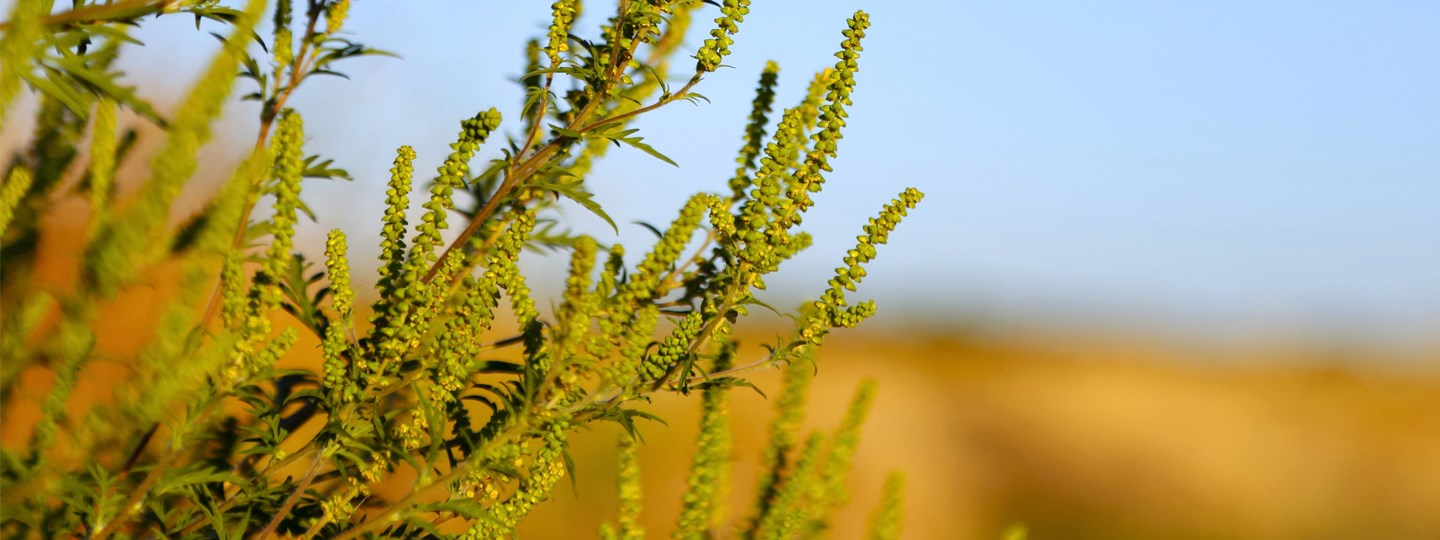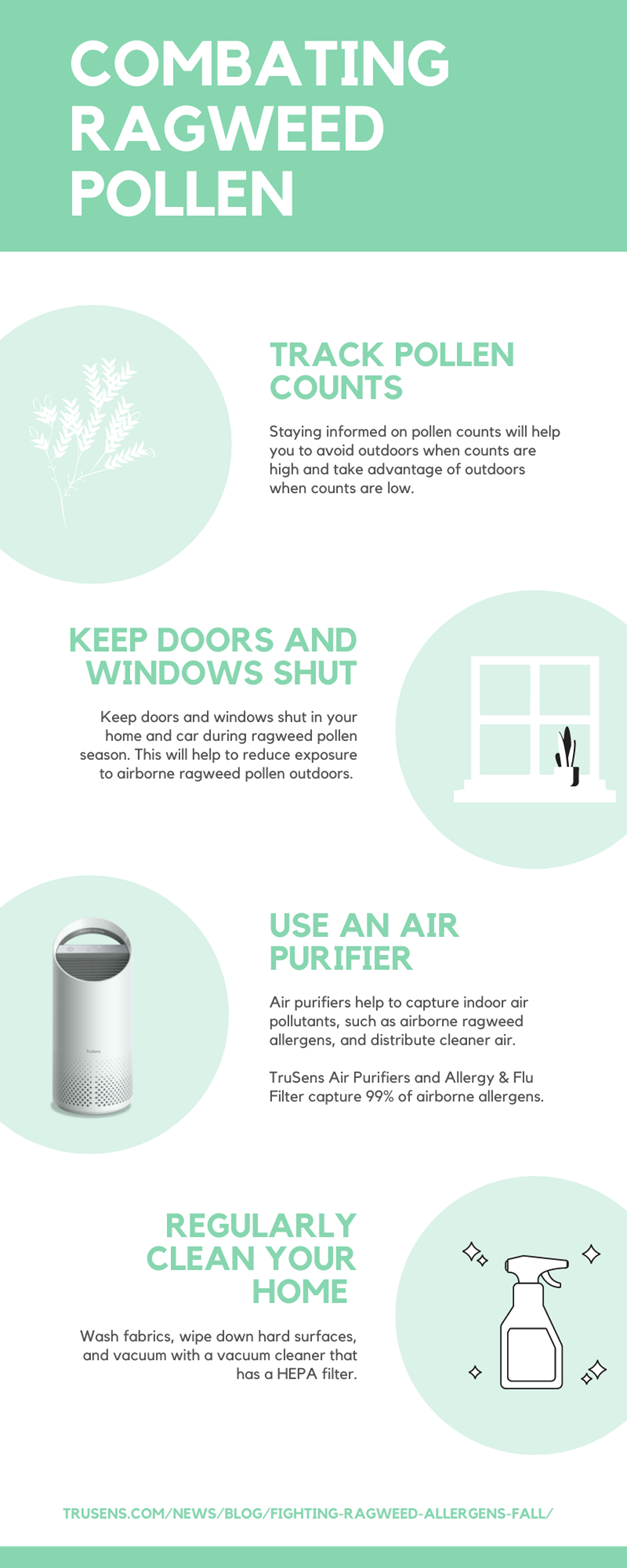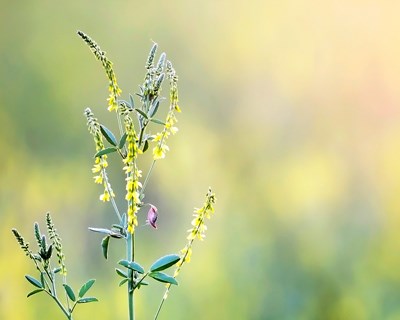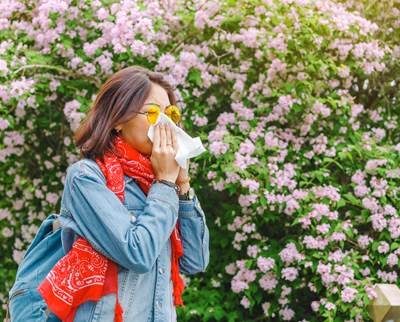
As summer days come to an end and the autumn leaves begin to change color, many people start to sneeze, wheeze, and their throats get itchy - all indicators that fall allergy season has arrived. Ragweed is one of the biggest culprits, especially when conditions are dry. The wind can carry pollen from ragweed, grasses, and trees up to hundreds of miles from their source.
What is Ragweed?
Ragweed is a common allergen, with roughly 40 species of weedy plants in the Asteraceae family. During peak season for ragweed, the plants release pollen in the air. While each plant only lives through one season, each plant produces up to one billion pollen grains. When the pollen grains are breathed in by people allergic to ragweed, they may experience mild to severe allergy symptoms.
When Is Ragweed Allergy Season?
Allergens can be present in the air all year, but there is a peak season when allergens are being released into the air, commonly known as “allergy season”. According to the American Academy of Allergy Asthma & immunology (AAAAI) on ragweed, “Fall allergy symptoms used to start in mid-August and run through September. However, in many parts of the country these symptoms now begin in early August and extend through October.”
The timing of this allergy season is specifically for ragweed, while other peak allergy seasons may vary throughout the year or by location.
What are the Symptoms of a Ragweed Allergy?
Symptoms may vary based on the person and level of exposure to ragweed pollen. However, sneezing, itchy eyes, and/or a runny nose are common symptoms that can be experienced by those who are allergic to the ragweed pollen.
Those who are allergic to one type of pollen may develop allergies to other types of pollen as well. According to the Asthma and Allergy Foundation of America (AAFA),“Seventy-five percent of people who are allergic to pollen are also allergic to ragweed.”
Can Ragweed Pollen Trigger Other Conditions Besides Allergies?
In addition to these symptoms, those allergic to ragweed may experience oral allergy syndrome (OAS). OAS, also known as pollen fruit syndrome (PFS), occurs when proteins found in some fruits and vegetables are similar to those found in pollen. This confusion in the immune system may cause symptoms including itchiness or swelling of the mouth, face, lip, tongue, and throat. (AAAAI)
This syndrome may cause those allergic to ragweed to have symptoms while eating foods such as banana, cantaloupe, cucumber, honeydew, watermelon, white potato, zucchini, or sunflower seeds.
Combating Exposure to Ragweed Allergens
Treatment may be the route that some take, but others may use reduced exposure to ragweed pollen. There are several ways to limit exposure to ragweed allergens during peak season.
- Track pollen counts. Staying informed on pollen counts will help you to avoid outdoors when counts are high and take advantage of outdoors when counts are low. Learn more about pollen counts here.
- Keep windows and doors closed in your home and car during ragweed pollen season. Shutting windows and doors will help to reduce exposure to airborne ragweed pollen outdoors.
- Regularly clean your home. Wash fabrics, wipe down hard surfaces, and vacuum with a vacuum cleaner that has a HEPA filter.
- Shower after being outside to remove pollen from your skin and hair. (CDC)
- If you experience OAS, avoid eating the foods associated with it.
- Use an air purifier to help reduce airborne pollen allergens indoors.
How TruSens Air Purifiers Help with Ragweed Allergens
Air purifiers help to capture air pollutants, such as airborne ragweed allergens, and distribute cleaner air. All TruSens Air Purifiers capture particulate matter as small as 0.3 microns, which means they capture airborne pollutants such as ragweed pollen. TruSens also offers a Specialty Allergy & Flu Filter that, when paired with the TruSens Air Purifier, works to capture 99% of airborne allergens in your home.



